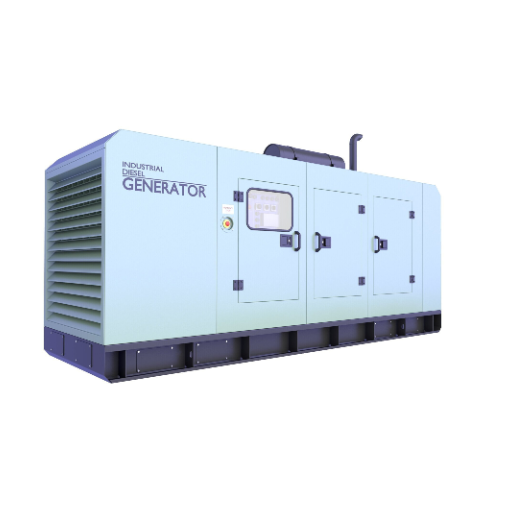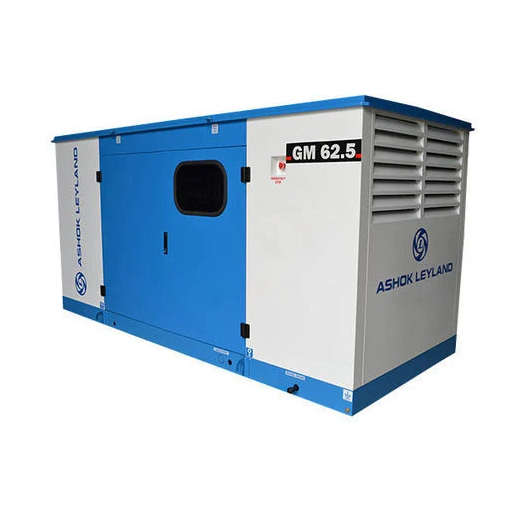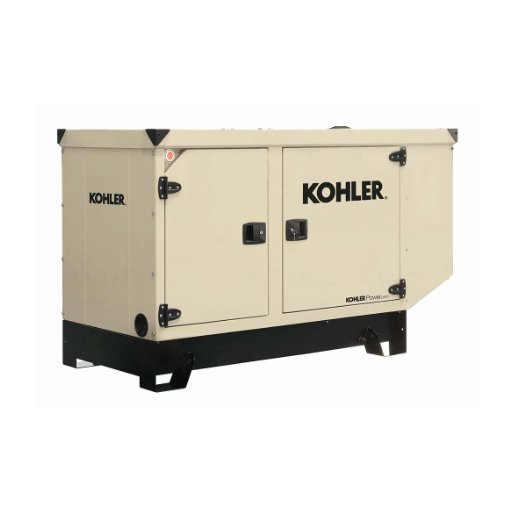In terms of dependable backup power generation, diesel generators are typically favored for residential, light-commercial, or industrial uses. Though often a question arises among those who run through extended periods- how long can diesel generators operate constantly? It is critical to understand limits, maintenance requirements, and best practices for prolonged operation to keep a generator working at optimal efficiency and avoid damage. This article discusses key considerations that affect generator runtime and presents viable ways to extend its life and dependability. Preparations for emergencies, projects for the long term, or just out of curiosity, the guide will unfold all that’s worth knowing.
Understanding Diesel Generator Runtime

The amount of runtime of a diesel generator depends on essential factors:
- Fuel Capacity
Diesel generators are generally limited by fuel capacity. Big tanks could accommodate longer runtimes, while smaller tanks require more refills.
- Load Demand
The runtime varies depending on how much power the generator feeds. The heavier the load, the more fuel is consumed, thus less runtime.
- Fuel Efficiency
Diesel generators present different kinds of fuel efficiency. Generators with better fuel efficiency will run longer on a given fuel volume.
- Maintenance and Condition
Careful maintenance, such as clean filters and ensured lubrication, will allow the generator to run smoothly and efficiently, maximizing runtime.
- Environmental Factors
Conditions outside, such as temperature and altitude, might influence the performance. Generators might use extra fuel in extreme weather or conditions that are not ideal.
Considering a high degree of optimization for any of these factors can truly extend the runtime and efficiency of your diesel generator. Always seek the manufacturer’s instructions for warnings and suggestions.
Factors Influencing Diesel Generator Runtime
- Load Management
Load is a big determinant of any generator’s runtime. Under heavy loads, the generator guzzles fuel at a much higher rate, making it inefficient. Balancing and managing the load can increase the runtime for a diesel generator, as some loads are unnecessarily heavy.
- Fuel Quality
The quality of diesel fuel for a generator does influence its working and, hence, its runtime. Low-quality or contaminated fuel might result in incomplete combustion, thus reducing efficiency and severely affecting or possibly damaging the generator components. Using clean, high-quality fuel affords maximum performance and longer run hours.
- Maintenance Schedule
Such maintenance is usually the only way to keep a diesel generator running; a clogged filter, worn parts, or lack of lubrication might reduce the generator’s runtime and performability. Keeping up a maintenance schedule as per the manual helps avoid unexpected downtime and prolong the generator’s life.
Types of Diesel Generators and Their Runtimes
Our diesel generators are categorized into several types, ranging from portable generators for periodic use to marine and heavy-duty power sets.
|
Type |
Runtime |
Power |
Mobility |
Use Case |
Fuel |
|---|---|---|---|---|---|
|
Portable |
8-12 hrs |
Low |
High |
Temporary |
Diesel |
|
Standby |
Continuous |
Medium-High |
Low |
Backup |
Diesel |
|
Prime Power |
Continuous |
High |
Low |
Primary Source |
Diesel |
|
Mobile |
Varies |
Medium |
Very High |
Construction/Event |
Diesel |
|
Marine |
Continuous |
Medium |
Low |
Boats/Vessels |
Diesel |
Comparison with Other Generator Types
Diesel generators are efficient and dependable, natural gas generators are cleaner and quieter, gasoline generators are inexpensive for light work, and inverter generators are suitable for sensitive electronics.
|
Type |
Fuel |
Efficiency |
Durability |
Noise |
Use Case |
|---|---|---|---|---|---|
|
Diesel |
Diesel |
High |
High |
Moderate |
Industrial/Backup |
|
Natural Gas |
Natural Gas |
Moderate |
Moderate |
Low |
Urban/Continuous |
|
Gasoline |
Gasoline |
Low |
Low |
High |
Small/Temporary |
|
Inverter |
Gas/Diesel |
High |
Moderate |
Low |
Electronics |
Best Practices for Running a Diesel Generator Continuously

- Keep Adequate Fuel in Stock
Make sure that the generator always has enough fuel to avoid interruptions. Use good quality, clean diesel to avoid damage or clogging in the fuel system.
- Monitor Load Capacity
Operate the generator within its load capacity range. Overload will cause the generator to overheat and eventually damage it, while running too low will cause high carbon deposition and inefficiency.
- Check Oil and Coolant Levels
Please keep checking the oil and coolant levels and filling them as required to help ensure the engine remains well lubricated and cooled during continuous operation.
- Inspect Air and Fuel Filters
Clean or replace air and fuel filters as required for good airflow or fuel quality. Back-pressure on filters lowers output and causes wear.
- Perform Regular Visual Inspections
Look for signs of wear, leaks, or loose connections during running cycles. Early detection of problems can save expensive repairs.
- Follow the Manufacturer’s Schedule for Maintenance
Following the manufacturer’s recommended maintenance schedule ensures the inspection and servicing of critical components like belts, hoses, and exhaust systems as necessary.
- Now for Ventilation Use
Keep the generator in a well-ventilated spot so that it doesn’t overheat and disperses its exhaust fumes safely there.
- Use Ta ransfer Switch for Safe Operation
The generator must be connected to a building using a transfer switch to prevent backfeed and ensure the safety and reliability of power delivery.
Following these best practices helps ensure diesel generators operate at full efficiency, build toward a longer lifespan, and continue to provide continuous and reliable service.
Safe Operation of Diesel Generators
Diesel generators must be operated safely and comply with the latest safety codes and guidelines. Diesel generators must be maintained regularly, where oil levels are checked, air filter elements are exchanged with new ones, and fuel systems are checked for leaks or blockages. The operators should ensure proper grounding for the system, as overloading may cause overheating and possibly system failure. Carbon monoxide detectors should also be fitted within these generators’ areas to help monitor outage fumes. Through enhancing the reliability of diesel generator operations, one can stay abreast of the changes in safety regulations regarding the latest technologies.
Ensuring a Continuous Fuel Supply
The continuity of fuel supply to diesel generators mainly depends on proper planning and storage. First of all, estimate the generator’s fuel consumption relating to the load and time of operation so that required fuel reserves can be considered. As prescribed by local regulations, invest in good-quality fuel storage tanks in a secure and preferably ventilated area away from any ignition source. Ensure your fuel storage system is always maintained and checked for contamination, leakage, or deterioration. Also, arrange for fuel to be delivered regularly through a reliable supplier to avoid unexpected interruptions caused by emerging demands or logistical issues. These measures will help reduce downtime, ensuring the efficient and reliable functioning of the generator.
Optimal RPM for Extended Use
The optimum RPM for long-time generator operation depends on the engine type and the nature of its operation. Most diesel generators are designed to run efficiently at 1500 or 1800 RPM, with 1800 RPM generally preferred for generators in the U.S. because of their 60 Hz frequency standard. The generators running at 1800 RPM tend to last longer while producing much less noise than those running at 3600 RPM, which are mostly common for small, portable types. Adhering to the recommended RPM is the surest way of achieving fuel efficiency, reduced wear and tear, and consistent power output. Continued good servicing and maintenance by following the manufacturer’s instructions will improve the generator’s performance over an extended period.
Maintenance Tips for Prolonging Diesel Generator Usage

- Regular Oil Changes
Oil changes should be performed according to the manufacturer’s schedule to ensure smooth engine operation and to guard against damage.
- Check and Replace Air Filters
Air filters should be cleaned or replaced regularly to ensure proper airflow and prevent dirt from entering the engine.
- Monitor Coolant Levels
Keep the coolant at the correct level and change it periodically to prevent overheating and enhance engine efficiency.
- Inspect the Fuel System
Check for leaks or contamination in the fuel system. To avoid clogging and damage, use clean, good-quality fuel.
- Test the Battery
Test and check the battery regularly to ensure that it holds a proper charge, and replace it if it is found wanting.
- Keep the Generator Clean
Keep the generator free of dirt, debris, and dust to avert wear and malfunctions.
- Run the Generator from Time to Time
Run the generator occasionally when it is not in use to keep the components lubricated and ensure its continued functioning.
- Follow Manufacturer Guidelines
Follow the manufacturer’s schedule and instructions to enhance performance and ensure longevity.
With consistent application of these steps, your diesel generator will perform reliably and have an extended working life.
Routine Maintenance Checks
Diesel generators that function efficiently require regular maintenance checks. These checks may include looking for leaks or blockages in the fuel system, checking fluid levels that include engine oil, coolant, etc., and cleaning or replacing air filters accordingly. Check battery voltage and connection, and inspect belts and hoses for wear or damage. The routine maintenance will give better performance, besides avoiding exorbitant repairs or breakdowns. Always note the manufacturer’s instructions for particular intervals and procedures to keep the generator running perfectly.
Upgrading Components for Better Performance
Generational components upgrades optimize the generator’s efficiency, reliability, and working life. Among the most descending upgrades to implement are the installation of premium-stage alternators. These alternators increase power output and maintain stable voltage levels, reducing the stress that might go into connected devices. For instance, premium alternators can improve between 12 and 15% efficiency, particularly for heavy-duty applications.
Another worthy consideration is a more sophisticated fuel system. Fuel injectors upgraded for better economy and emissions are perfect examples. Depending on usage, electronic regulators on modern fuel systems can increase fuel economy by up to 20%.
Smart monitoring systems should also be considered for further enhancement. These allow generators to be monitored against real-time metrics such as runtime, fuel levels, and maintenance schedules. Data analytics can support more efficient generator operations and possibly avoid malfunctions.
Fitting heavy-duty or high-flow air filters in place of standard ones is yet another way of maximizing generator performance by raising airflow into the engine for smooth and powerful operations. It has been established that upgraded filters can increase an engine’s efficiency by 5-10%.
Finally, noise reduction enhancement systems tend to be user-friendly. They create a pleasant ambience by almost eliminating operational noise. For instance, premium-grade noise-reduction kits reduce the noise level from generators by nearly 50%, making them amenable in residential areas or environmentally conscious zones.
Hence, each of these will, in combination, enhance the performance characteristics of your generator and make it adaptable to modern technological demands for efficiency and sustainability. Always ensure these fit your model generator and seek professional technician advice while incorporating these upgrades.
Choosing the Right Diesel Generator for Your Needs

The right diesel generator can be chosen considering several important factors:
- Power Requirements – Calculate the full wattage your appliances, equipment, or systems need. The generator must be of equal capacity or more.
- Usage Frequency—Decide if the generator is for occasional (backup power) or continuous use, which will determine its type and size.
- Fuel Efficiency—Look at fuel-efficient models that would save you money on operating costs during long-term or frequent use.
- Noise Level – If working in noise-sensitive environments or residential areas, preference should be given to the quietest models and those supporting noise reduction kits.
- Size and Portability – Consider whether it should be stationary or portable, depending on your storage and mobility needs.
- Brand and Warranty—Opt for a renowned brand that offers the most extended warranty, just so you can be satisfied in case of product malfunction.
With these factors checked off, an appropriate diesel generator that perfectly addresses all your requirements will be readily available to you.
Evaluating Your Power Requirements
Before purchasing a diesel generator, understanding your power needs is of utmost importance. List all the appliances, tools, or systems you intend to power using the generator. Their watt requirements must also be considered: running watts and starting watts. Starting watts come into play when some devices, such as refrigerators or air conditioners, draw more power to start. Next, add all wattages together to compute the total amount of wattage required. Consider potential power requirements down the road so you do not understate your power needs. Once you determine your power needs, you can honestly choose a generator to fit your present and possible future needs for energy.”
Portable vs. Standby Generators
Portable generators are cheaper than their bigger standbys, and they are also mobile and therefore suitable for short-term usage. The standby kind that works automatically is concerned with permanent, long-term, whole-home power needs.
| Parameter | Portable | Standby |
|---|---|---|
| Cost | Low ($400-$1.5k) | High ($2k-$10k) |
| Installation | None | Professional |
| Power Output | 3-8.5 kW | 8-20 kW |
| Fuel | Gasoline/Diesel | Propane/Natural |
| Operation | Manual | Automatic |
| Mobility | High | Fixed |
| Noise | High | Low |
| Use Case | Temporary | Long-term |
Expert Recommendations for Selection
When selecting a generator, a frequent question is, “Should I go with the portable type or the standby generator?” This answer is a typical response based on one’s needs and circumstances. Portable generators are great when the use is temporary or very infrequent. For instance, they can power tools at a job site or provide electricity during shorter outages. They are vastly less expensive, easy to store, and versatile. Standby generators are, however, best suited for long-term and recurring use, especially for homes or establishments where uninterrupted power is essential. In case of a power outage, they automatically start running, offer a high wattage capacity, and are permanently installed for convenience. Based on how much wattage is required, if portability is wanted, and depending on the budget, one can make an informed decision.
Reference Sources
- Optimal Design of Hybrid Renewable Systems, Including Grid, PV, Bio Generator, Diesel Generator, and Battery
- Authors: Meisheng He et al.
- Publication Date: 2023-02-10
- Journal: Sustainability
- Summary: This study focuses on optimizing hybrid renewable systems that include diesel generators. It discusses the operational strategies for ensuring a continuous power supply and minimizing costs.
- Assessment of the Impact of Battery Selection on the Feasibility of Hybrid Renewable Energy Systems
- Authors: Ravi Chaurasia et al.
- Publication Date: 2022-02-23
- Journal: Energy Storage
- Summary: This paper assesses the feasibility of hybrid renewable energy systems that include diesel generators and various battery technologies, focusing on their operational efficiency and environmental impact.
- Hybrid Diesel/PV Multi-Megawatt Plant Seasonal Behavioral Model to Analyze Microgrid Effectiveness: Case Study of a Mining Site Electrification
- Authors: Sani Moussa Kadri et al.
- Publication Date: 2022-10-22
- Journal: Processes
- Summary: This study presents a model for analyzing the effectiveness of hybrid diesel and photovoltaic systems in a mining site, focusing on operational strategies for continuous power supply.
Frequently Asked Questions (FAQs)
How long can a diesel generator run continuously?
A diesel generator can run continuously for extended periods, often between 500 to 800 hours, depending on its design and the load it is under. Factors such as fuel tank size, cooling systems, and maintenance can also affect how long it can operate without needing a refuel.
What factors affect how long a diesel generator can run?
Several factors influence a diesel generator’s run time, including the generator type, tank size, engine temperature, and the load it is supporting. A larger fuel tank allows for longer operation times, while higher loads can decrease the duration of continuous power supply.
Can a portable generator run continuously?
Portable generators can run continuously but typically for shorter periods, usually between 6 and 18 hours, depending on their fuel source and tank size. Due to their smaller fuel capacities, they are more limited than industrial generators.
How do I choose the right generator for a continuous supply?
To choose the right generator for a continuous supply, consider your power requirements, the type of generator (diesel, propane, or natural gas), and the expected run time. The fuel source availability and the generator’s ability to run under load for extended periods should be evaluated.
What is the run time of a backup generator?
The run time of a backup generator varies based on its fuel tank size and the load it carries. Most standby generators can run for several hours up to a few days if they have sufficient fuel and are properly maintained, making them ideal for emergency power during prolonged outages.
How long can you run a diesel generator before refueling?
The duration you can run a diesel generator before needing to refuel depends on its fuel tank size and the overall load. Generally, if the generator operates under moderate load, you might expect a run time of around 24 to 48 hours before a refuel is necessary.
What is the maximum run time for an industrial generator?
An industrial generator can run continuously for a significantly longer than smaller models, often exceeding 500 hours, provided it has a large enough fuel tank and is adequately maintained. These generators are designed for heavy-duty tasks and can handle substantial loads without interruption.
Can multiple factors affect a generator’s ability to run continuously?
Yes, multiple factors can affect a generator’s ability to run continuously. These include the type of fuel used, engine efficiency, load levels, cooling systems, and maintenance practices. Ensuring optimal conditions can help maximize the life of your generator and its continuous operation capabilities.
